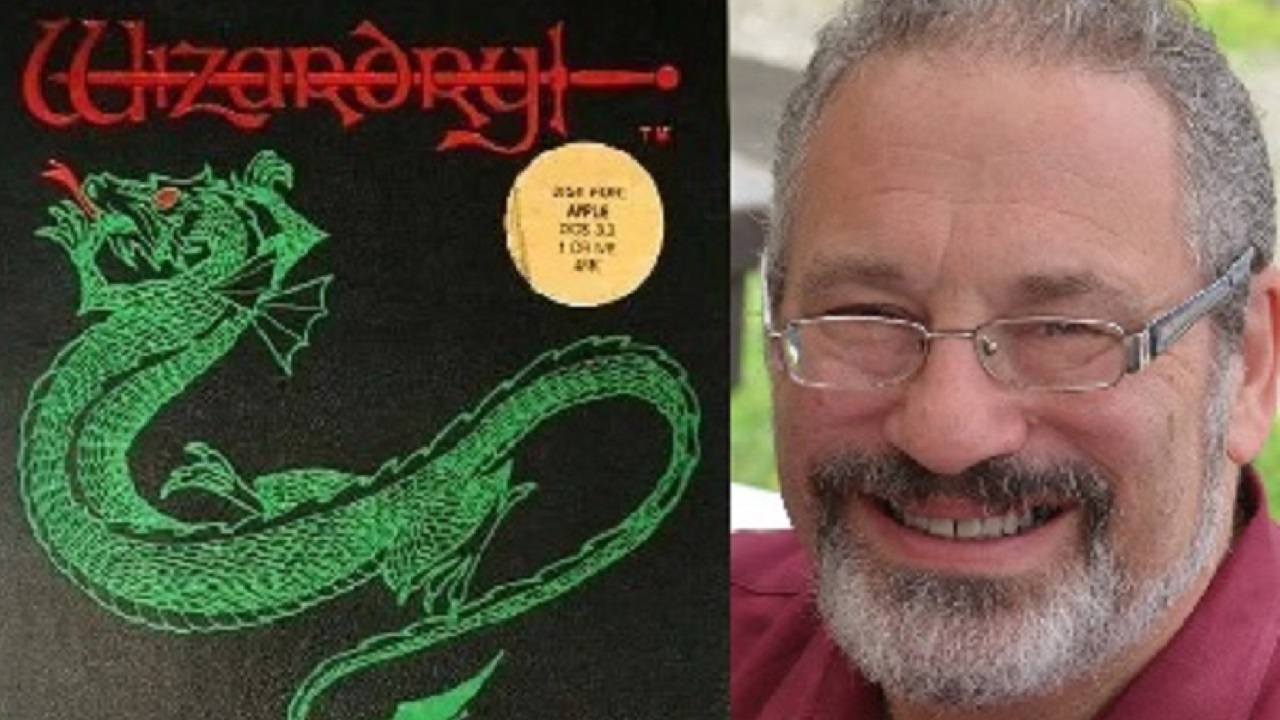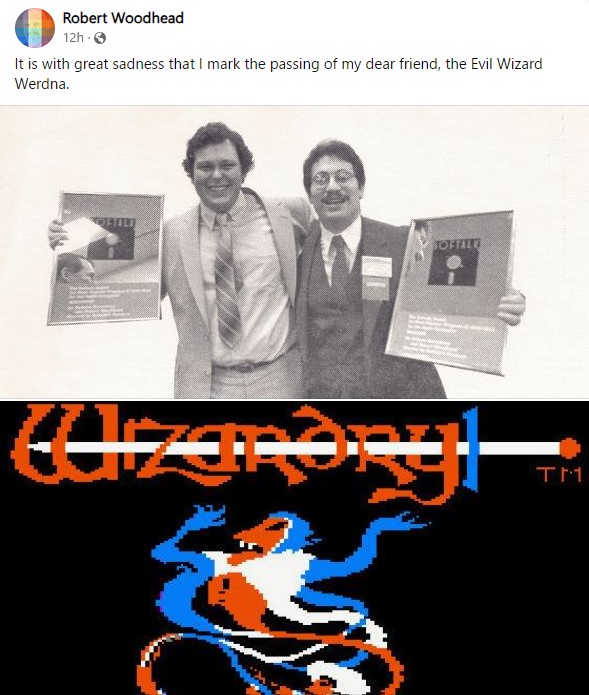Andrew C. Greenberg, co-creator of the influential Wizardry series of RPGs, has died
Wizardry was huge in the 1980s, and helped define both Western and Japanese RPGs as we know them.

Andrew C. Greenberg, co-creator of the foundational Wizardry series of RPGs, has died at the age of 67. The news was shared to Facebook by his collaborator on Wizardry, Robert Woodhead, and also to Twitter by developer and game design professor David Mullich.
It's hard to overstate Greenberg and Woodhead's influence on RPGs and PC gaming. Wizardry: Proving Grounds of the Mad Overlord was one of the first recognizable RPGs you could play on a home computer, a translation of tabletop RPGs and the games developed for the mighty PLATO mainframes present on college campuses at the time to the humble Apple II.

Wizardry was among the first—if not the very first—RPGs to give you control of an entire party of characters, each with distinct strengths and weaknesses. Wizardry tasked players with exploring a sprawling, wireframe labyrinth in first person, always on the lookout for secret doors, traps, and challenging enemies. At the bottom of the dungeon, players would find the titular "Mad Overlord" Werdna—Andrew spelled backwards. Greenberg seems to have carried the playful moniker with him long after leaving the games industry, using it for a personal email and the username of a YouTube channel he used to document the development of a bowling scorecard program.
Wizardry and the competing Ultima series would prove immensely popular throughout the 1980s, with Wizardry and its sequels getting ports to the major personal computers of the era like the Commodore 64 and MS DOS PCs. One surprising outcome was Wizardrys' influence in Japan, where it has had an even more enduring popularity and inspired the invention of the JRPG as we know it. Dragon Quest creator Yuji Horii has long cited Wizardry as a primary inspiration, and in a 2022 tweet about meeting Robert Woodhead for the first time, Horii wrote, "When I think back, it all started 40 years ago when I got really into Wizardry."
After co-creating the Star Saga games in 1988 and '89, Greenberg ultimately left the games industry to practice law, first focusing on intellectual property law in Florida before becoming the general counsel of renewable energy company Xslent. However, an archived snapshot of Greenberg's personal website, as well as his YouTube channel, show that he never abandoned his interest in computer programming. According to a letter from Greenberg shared to a Wizardry fan site in 1999, he married Wizardry playtester Sheila McDonald, and they had two children together.
Andrew Greenberg left the games industry a very long time ago, but his influence can still be felt in everything from Baldur's Gate to Persona. You can experience Greenberg's work on Wizardry more directly via Digital Eclipse's recent remaster of the first game, which took input from the Wizardry's creators, and also includes a picture-in-picture view of the original's 1-bit graphics.
Keep up to date with the most important stories and the best deals, as picked by the PC Gamer team.
Ted has been thinking about PC games and bothering anyone who would listen with his thoughts on them ever since he booted up his sister's copy of Neverwinter Nights on the family computer. He is obsessed with all things CRPG and CRPG-adjacent, but has also covered esports, modding, and rare game collecting. When he's not playing or writing about games, you can find Ted lifting weights on his back porch.

